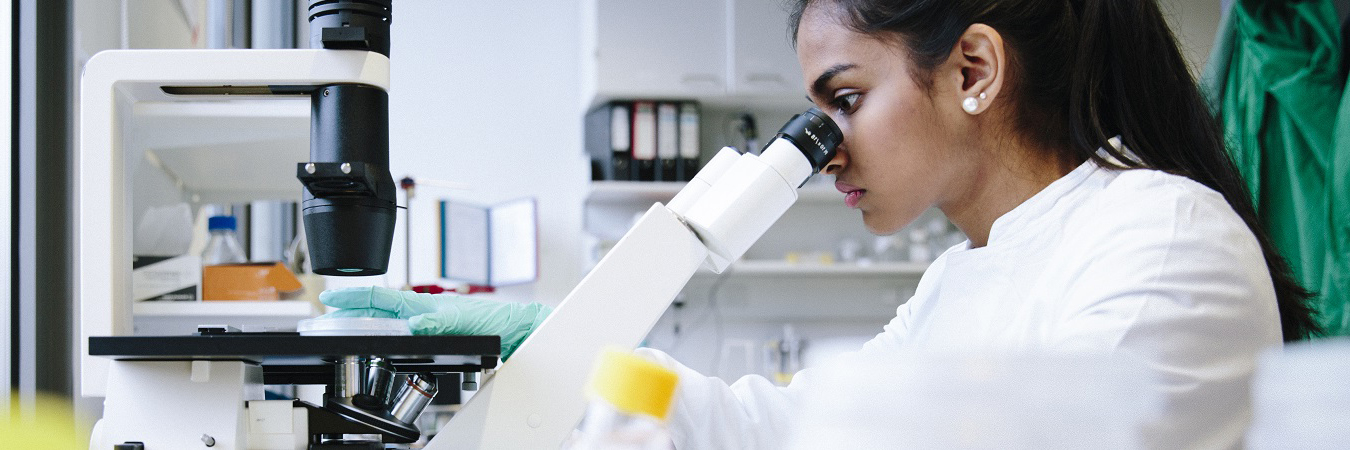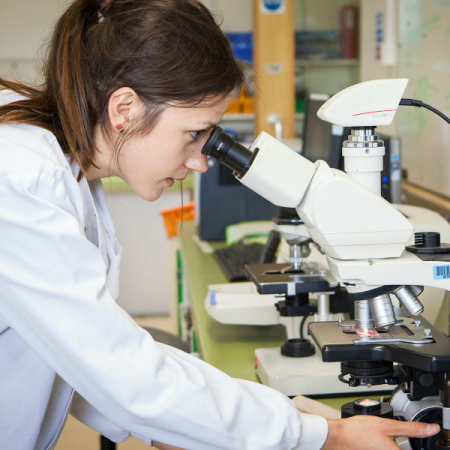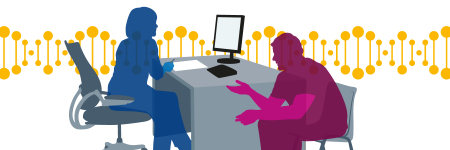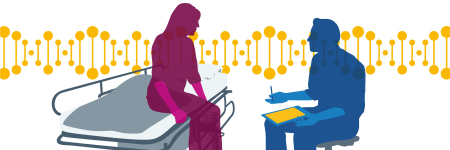Introduction
Advances in genomics are shaping the field of histopathology in a number of ways. In cancer, genomics is enabling more precise diagnosis, treatment and risk prediction. The work of the histopathologist now regularly includes integrating both morphological and genomic information in order to inform clinical decisions. Genomics is also enabling progress in terms of better sub-typing of cancers and the development of targeted treatments.
In this video, Professor Louise Jones and Dr Jane Moorhead outline some of the ways in which cancer histopathology has changed as a result of rapid advances in genomics. Using examples from their clinical practice and research, they also explore some of the possibilities for the future.
What do I need to know?
How have advances in genomics impacted pathology?
Sample processing
Due to the requirements of modern sequencing technology, there has been a move towards the use of fresh tissue for the extraction of DNA in order to ensure greater yield and less chance of artefactual DNA degredation.
Genomic technologies complement the use of immunohistochemistry, allowing us to look at both the protein changes and the genetic changes that may cause these protein changes. Insights into the molecular mechanisms that drive cancer have led to more targeted therapies and huge advances in personalised cancer treatment.
Changes in practice
Pathologists continue to report on morphological changes to tissue, as this is the basis of all tumour classification, but are now also involved in integrating genomic data with the morphological information.
Pathologists continue to work with biomedical scientists, clinical scientists and oncologists, and will work increasingly closely with colleagues who use and interpret results from molecular technologies, in order to provide the best care to patients.
Complementary roles
The role of healthcare scientists is also changing. The scientific workforce is in an ideal position to move into interpretation and reporting of molecular assays.
Biomedical scientists have involvement in dissection and cut-up of samples, as well as tumour assessment and testing – ensuring sufficient tumour nuclei are present in a sample before DNA is extracted.
Genomics in practice: application in histopathology
Informing treatment decisions
Genomics is used to predict drug response. It has allowed for increased sub-typing of tumour types, meaning that targeted treatments can be offered where available – for example, tyrosine kinase inhibitors (TKI) or anti-epidermal growth factor receptor (EGFR) antibodies. The number of drug targets is increasing all the time and it is only a matter of time before more and more treatments are developed.
Clinical teams can in some cases make more informed decisions about the use of radiotherapy and chemotherapy – and the hope is that this will become more common as understanding increases.
Refining prognosis
The presence of known variations in specific genes can also serve as an indicator of prognosis, and can inform decisions regarding a patient’s care and communication regarding clinical outcomes.
How can I play my part?
Histopathologists and colleagues in biomedical and clinical science are vital to the provision of high-quality cancer care and it is vital to keep apace of changes and new developments.
There is no better time to embrace the opportunities that genomics brings, and the changing roles of those involved in every facet of patient care.









